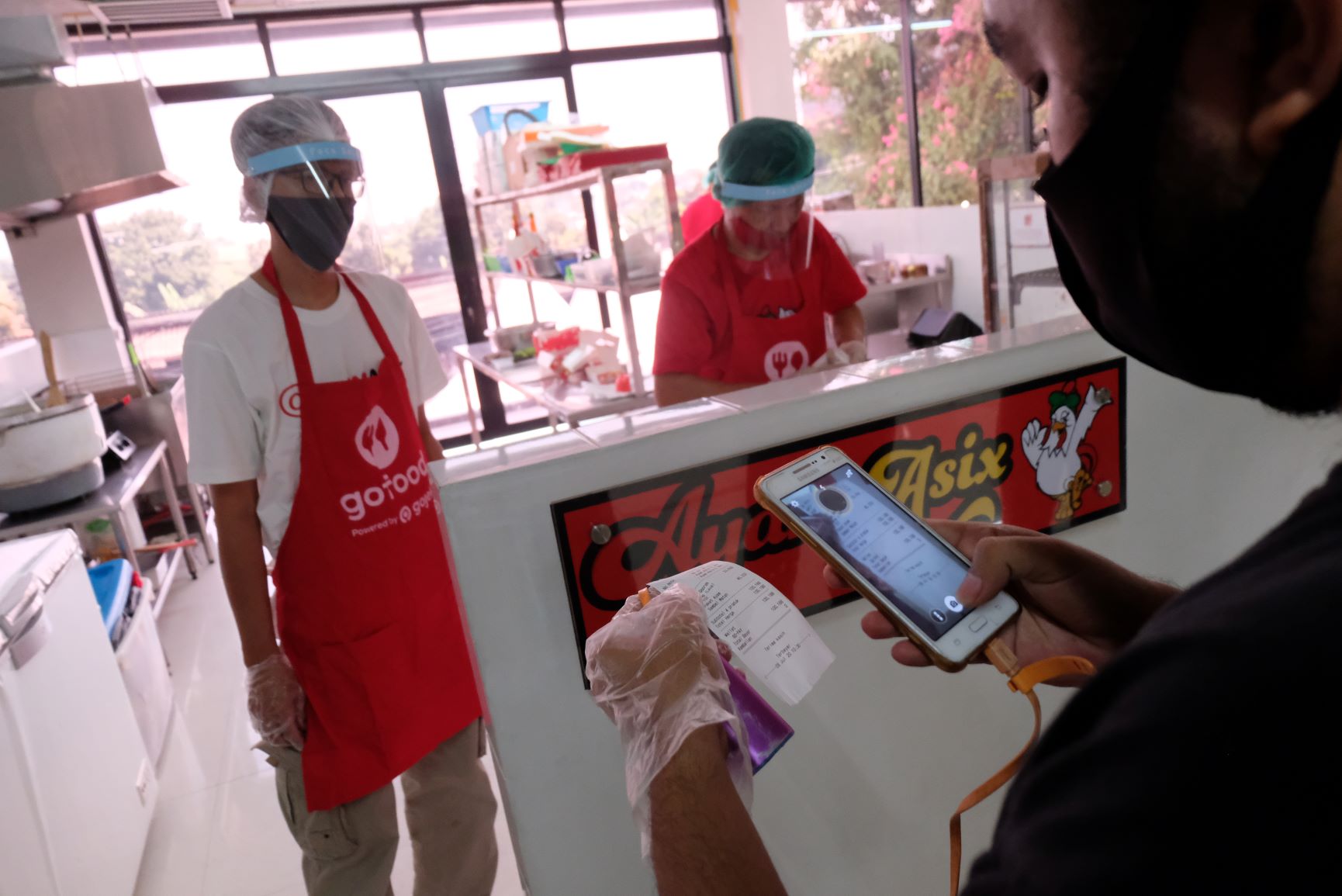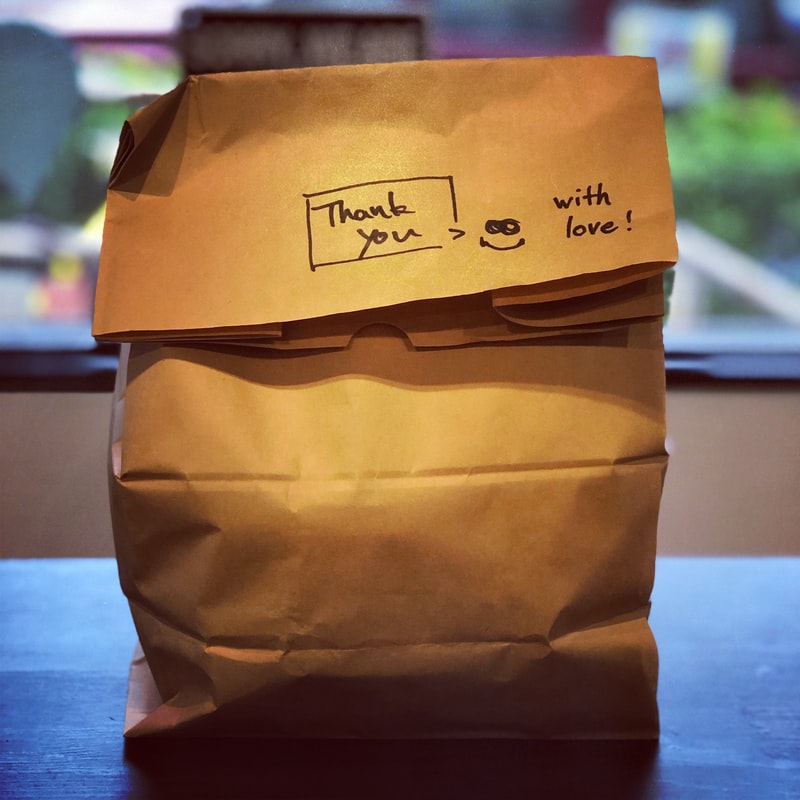The "Food Delivery" Business Best Selling During the Pandemic
GMV is predicted to surpass the transportation business by 2025, according to e-Conomy 2020
Food delivery service industryfood delivery) recorded a stunning performance throughout the pandemic due to the recommendation to reduce mobility out of the house. Although, on the other hand, it directly affects the decline in the performance of the transportation industry.
Annual report e-Conomy SEA 2020 compiled by Google, Temasek, and Bain & Company reveal GMV growth food delivery not enough to offset the contraction in the transport sector in the six Southeast Asian countries. The recorded GMV of food delivery services this year reached $6 billion, while transportation was $1 billion lower at $5 billion.
Last year, the GMV of food delivery services reached $5 billion and transportation $8 billion. Of the various triggering factors during the pandemic, these conditions have changed the food delivery industry towards a smoother path. e-Conomy SEA predicts that by 2025, the food delivery industry will dominate with a GMV of $23 billion, while that of transportation is $19 billion.
"food delivery Initially considered a luxury, but now it is a lifesaver for many families. Meanwhile transportation is still a concern for many people to reduce their activities. "As a result [this year's GMV] for food delivery and transportation services there has been a correction," explained Bain & Company Partner and Leader Alessandro Cannarsi during a virtual press conference, Tuesday (24/11).
e-Conomy SEA also highlighted a spike in search volume for order food that occurs per country during lockdown enforced. The six countries researched showed that four countries experienced a significant increase of more than 10 times compared to four years ago, except for Singapore and Vietnam. In Indonesia, it was recorded that search volume increased 13 times and in Thailand up to 20 times.
This surge can be interpreted as the beginning of people's dependence on these services. Moreover, there is a thin line that separates services online groceries with food.
e-Conomy SEA reports, WFH forms a new habit of cooking from one's own kitchen (in line with the increase online groceries). This trend has been answered by expanding the business verticals of food delivery service players. Not just ready to eat (ready-to-eat), but also daily necessities.
In Indonesia itself, the leading players competing with each other in this segment are GoFood and GrabFood because of the ecosystem food tech complete andcover national area.

Other players, with a more limited scope, have their own fleets, and more services niche inhabited by Yummy Corp, Kulin, Gorry Holdings, Waculiner with coverage of more than one city, followed by local players KitchenGo (Yogyakarta) and Homemade (Jakarta).
This bright prospect is also widely interpreted as an opportunity for survival. Connect previous post, a number of directory players and review places to eat (food directory) which operates in Indonesia is expanding its business to this segment to remain relevant to needs. Of note DailySocial, they are Chope, Qraved, and Traveloka Eats.
They do not provide their own fleet because they require large capital to compete. This food delivery service market, especially for Gojek and Grab, formed with crazy subsidies to create demand.
The same strategy is also taken Table. This player is still new to Indonesia and the delivery coverage is only in parts of Jakarta, Bekasi, Karawang, Tangerang, Depok, Bogor and Bandung. Tabula plays as a restaurant directory for various brands and builds a system Back-end for easy delivery and integration with electronic money payment systems.
Tabula's business model overlaps somewhat with hangry which operates many food brands under its banner. Both of them also do not have their own fleet to deliver food, but take advantage of the presence of the fleet Gojek or Grab.
The same considerations are also taken Draft Beer. In a joint interview DailySocial, General Manager of Chope Indonesia Karthik T. Shetty explained that playing in food delivery services is really challenging, and also expensive. The unit economics are very difficult to justify, unless the company has large volumes, especially if the company handles inter-logistics as well.
"Luckily for us, in Indonesia we are not involved in the logistics of shipping," he explained.
He continued, “Chope gives the option to choose and order, but we don't do the delivery ourselves. "This method using WhatsApp is widely appreciated by restaurant partners because it is considered easier for the staff."
| Food tech player | Director | Delivery service | Cloudkitchen | Voucher | Dine-in / Takeaway / Pickup | Service coverage | B2B |
| GrabFood | X | X | X | - | X | National | - |
| GoFood | X | X | X | - | X | National | - |
| Kulin | X | X (own fleet) | X | - | - | Jadetabek | X |
| Gorry Holdings | X | X (own fleet) | - | - | - | Jakarta, Tangerang | X |
| Yummy Corp | X | X (own fleet) | X | - | - | Jakarta, South Tangerang | X |
| Traveloka Eats | X | Third party | - | X | X | National (limited) | - |
| Waculiner | X | X (own fleet) | - | - | - | Jadetabek, Surabaya | X |
| KitchenGo | X | X (own fleet) | - | - | - | Yogyakarta | X |
| Homemade | X | X (own fleet) | - | - | - | Jakarta | X |
| Table | X | X (Third party) | - | - | X | Greater Jakarta, Bandung | - |
| hangry | X | X (Third party) | X | - | X | Greater Jakarta | - |
| Qraved | X | X (Third party) | - | - | - | Big cities in Java, Bali and Medan | - |
| Draft Beer | X | X (Third party) | - | X | X | Greater Jakarta | - |
| Eatigo | X | - | - | X | X | Jadetabek | - |
Players from outside Indonesia
The overview of SEA's e-Conomy shows just how big the niche is foodtech in the future. The United States has DoorDash, UberEats, Postmates, and others, the United Kingdom has Deliveroo, China has Meituan, and India has Swiggy and Zomato.
From a short discussion held by Tech In Asia some time ago, Swiggy COO Vivek Sunder said, this industry can grow quickly because of three factors, namely the existence of technology, consumer centricityand timing the right one.
Swiggy took a revolutionary approach to its business escalation. In the first 3,5 years, the company implemented the general method for each expansion to a new city by recruiting and training couriers and visiting each restaurant to onboard into the application.
This process made the company's expansion slow because in 3,5 years it only entered 10 cities. If calculated manually, to enter all of India would take years. Surviving in this way certainly does not make the company competitive. The way of working was finally changed to be disruptive.
“This method certainly didn't make many people happy internally at first. But we are a company . We believe in technology and rely heavily on it," explained Vivek.

The disruptive method was finally chosen by entering five cities with high population representation there. So crowdsource all the information that consumers have about what they are asking Swiggy to do, considering that the company does not know well what the conditions are like there.
“We didn't put a single person in the city, everything was done individually remote. We asked consumers which restaurant we would like to present to you. We collected these answers randomly crowdsource to find out more. "When it is successful, it can be immediately escalated to a larger scale."
This disruptive way of working was successful in bringing Swiggy, within a period of 12-15 months, to add 500 cities in India.
For him, the most important key that must exist in the company food delivery is to truly understand what consumers want. Therefore, companies rely heavily on the use of analytical data, data science, to get further insight real depth team regarding consumers, both in terms of behavioral and qualitative aspects.
For this reason, the company created a new team of "CTOs". It doesn't stand for Chief Technology Officer, but Consumer Technology Operations. "It's useless if you have a good application, but if the food doesn't arrive within 30 minutes consumers won't use it anymore. So I want to food delivery, grocery, or other services, the operation must be the best.”
Swiggy's services have now expanded widely. Apart from food delivery, there are groceries, hyperlocal delivery services, and products dairy. "We have entered many verticals, some are already pilots. So after Covid-19 we can become players food plus plus, "He said.
Is the market for food delivery services faster mature?
Even though food delivery service players are busy, that doesn't mean the market will immediately become saturated. Partners Alpha JWC Ventures Eko Kurniadi explained that the F&B business, including food delivery services, has a very large niche and will continue to grow rapidly.
This potential is more than enough to accommodate several big players in it. Moreover, from the public's perspective, it is becoming more comfortable to use this service. You can be sure that the market continues to grow every day.
"In America and Europe, for example, there are several big players in this sector [Deliveroo, UberEats] and new similar startups continue to emerge, so the industry remains dynamic and players must continue to innovate," he said.
Therefore, it is not appropriate to look at this industry yet mature faster because he is still very young. "To be saturated Looks like it will still take quite a long time."
The Managing Partner agreed with the same thing AC Ventures Adrian Li. According to him, he concluded that the market for food delivery services was complete mature it's premature, seeing as restaurant adoption of the technology is still in its infancy.
However, the industry's long-term winners will likely not emerge from the B2C side, but B2B with integrated products -- working with restaurateurs.
Adrian sees food delivery services becoming more entrenched as an important part of casual dining restaurants' revenues. While the restaurant directory startup, which only supports sections front end from restaurants to increase traffic, requires integration as an added value. Moreover, this directory business has to compete with searches on Google.
“Providing the best customer experience means creating a more efficient transaction flow. However, to do this requires not only payment integration but also an ERP system for the restaurant because managing orders will be an important part of preparing orders takeaway or food delivery services.”
He gave an example, one of the businesses that has developed an ERP system is a local SaaS company called ESB with EZ Order service, AC Ventures portfolio. The company offers a restaurant management platform full stack, enabling easy integration of all online ordering platforms, whether it is a website or from social media.
Sign up for our
newsletter
 Premium
Premium
